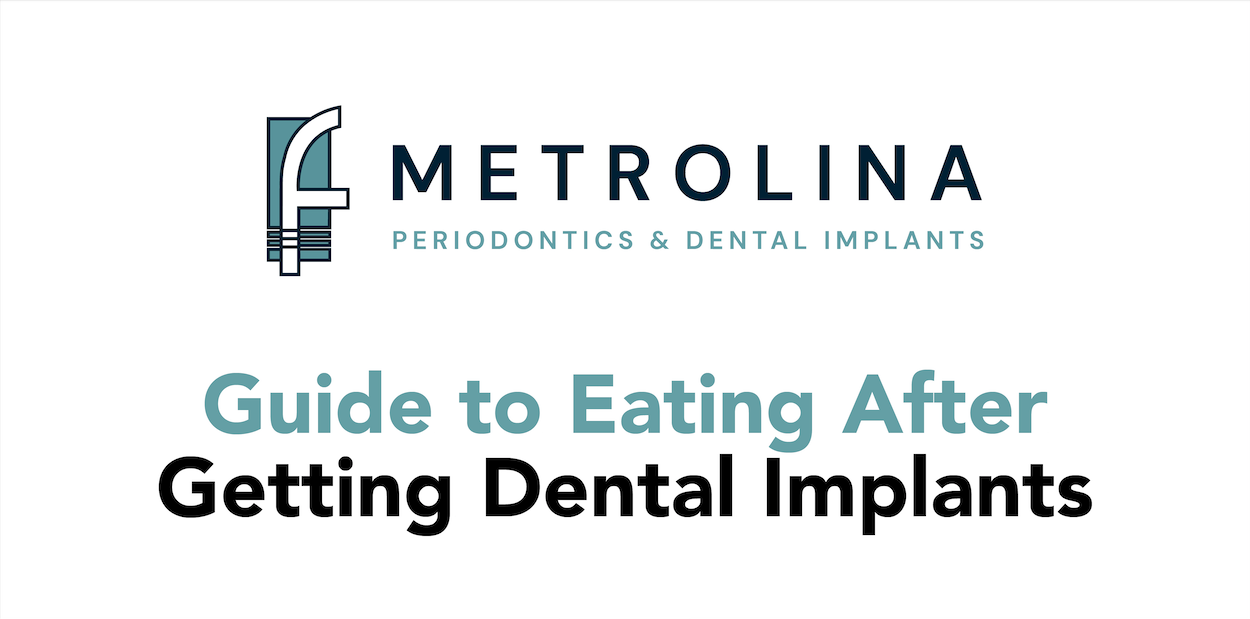After Final Placement of Permanent Crowns
This is when you can get back to enjoying life to the fullest! Dr. Ficca works closely with your dentist to expedite the restoration and placement of your final set of prosthetic teeth. Once Dr. Ficca confirms that the implant and bone are strong enough and your dentist places the new tooth, you will be free to resume your normal diet and enjoy your new teeth!
When Can I Eat Chips After Dental Implants?
Taking proper care of your dental implant is crucial, including avoiding hard or crunchy foods such as chips during the initial healing period, which may last from a few days to several weeks after the procedure. Following specific guidelines and instructions regarding when consuming chips and other similar foods is safe can help you achieve a quicker recovery.
Risks of Not Following Food and Dieting Protocols After Implant Surgery?
As with any surgical procedure, it is important to follow the post-operative instructions provided by Dr. Ficca after the placement of your dental implants. If you do not, you could experience complications such as excessive bleeding, excessive swelling, pain, infection, or even dental implant failure. If you have questions regarding the food and dieting protocols after implant surgery, do not hesitate to call Metrolina Periodontics & Dental Implants, and a member of our knowledgeable team will be happy to help you.
Will I Ever Be Able to Eat Normally Again?
The answer to this question is a resounding YES! As we have mentioned, one of the best benefits of dental implants is the fact that you will be able to eat normally once your dental implants have healed and your final set of prosthetic teeth has been placed. You will have no dietary restrictions, and you will be able to eat anything you want without fear or anxiety!
Eating Right is Just One Way to Take Care of Your Implants
While eating right is important during your recovery after the placement of your dental implants, it is not the only thing you can do to ensure success. Be sure to follow everything listed on the post-operation documentation Dr. Ficca and his team provided. This will include resting, proper oral hygiene, pain management, and addressing possible bleeding and swelling after surgery. Properly taking care of your gums and dental implants after surgery will help ensure your procedure is a success and that your teeth last a lifetime.
Think You Are a Candidate for Dental Implants? Consult with Your Local Periodontist
If you have loose, missing, or damaged teeth and believe dental implants may be right for you, call our office in Charlotte today at (704) 544-2224 to schedule your initial consultation with Dr. Ficca. During your appointment, he will perform a full evaluation, take any needed X-rays, including 3-D cone beam CT scans or images, and explain how dental implants could uniquely benefit you.
 One of the most significant benefits of dental implants is that once healed, they do not carry any dietary restrictions. However, in the days and weeks after your surgery, you must avoid certain foods to protect your new implants.
One of the most significant benefits of dental implants is that once healed, they do not carry any dietary restrictions. However, in the days and weeks after your surgery, you must avoid certain foods to protect your new implants. Take time to rest – you will not need to be down long, but the day of and the day after your surgery should be days of rest.
Take time to rest – you will not need to be down long, but the day of and the day after your surgery should be days of rest. Practice proper oral hygiene – you will be provided with a detailed schedule for when and how you should perform oral hygiene after dental implant surgery. Be sure to follow it.
Practice proper oral hygiene – you will be provided with a detailed schedule for when and how you should perform oral hygiene after dental implant surgery. Be sure to follow it. Stay hydrated – one of the biggest keys to recovery is hydration. Be sure to drink plenty of water in the days after your surgery, but avoid using a straw as the sucking motion could disturb your incision sites.
Stay hydrated – one of the biggest keys to recovery is hydration. Be sure to drink plenty of water in the days after your surgery, but avoid using a straw as the sucking motion could disturb your incision sites. Minor bleeding and swelling are expected – minor bleeding and swelling should be expected immediately after surgery. Use ice packs to reduce swelling and gauze to control bleeding.
Minor bleeding and swelling are expected – minor bleeding and swelling should be expected immediately after surgery. Use ice packs to reduce swelling and gauze to control bleeding.




 Proteins – eggs, omelets, chicken, fish, ground beef, turkey
Proteins – eggs, omelets, chicken, fish, ground beef, turkey Healthy carbohydrates – sweet potatoes, bananas, oats, blueberries
Healthy carbohydrates – sweet potatoes, bananas, oats, blueberries Healthy fats – avocados, nut butters, edamame, olives
Healthy fats – avocados, nut butters, edamame, olives Dairy – cheese, yogurt, cottage cheese, protein shakes
Dairy – cheese, yogurt, cottage cheese, protein shakes



